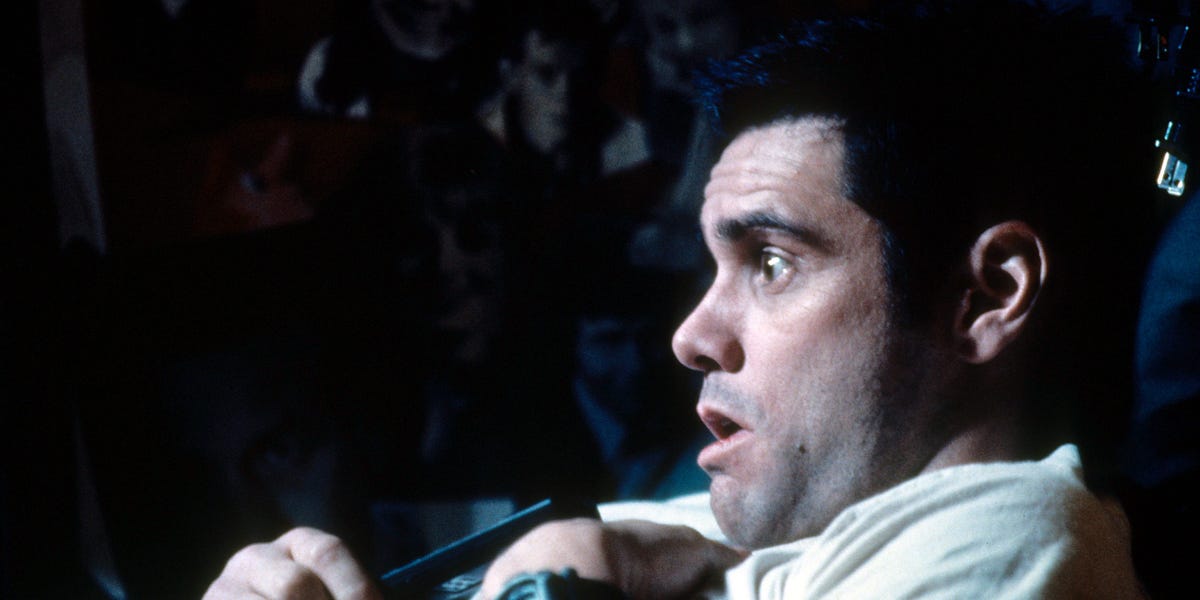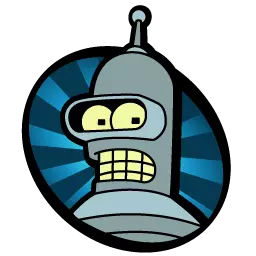Tech’s broken promises: Streaming is now just as expensive and confusing as cable. Ubers cost as much as taxis. And the cloud is no longer cheap::Some tech is getting pricier and looking a lot like the older services it was supposed to beat. From video streaming to ride-hailing and cloud computing.
Remember that all that “disrupting the market” ever meant was undercutting competitors. Everything else was window dressing.
Not just undercutting competition but also by subverting regulations and organizations like unions.
Undercutting competitors is how you foster a pro-consumer market. That’s one of the core tenets of capitalism. On its own, that’s a good thing. The problem is when companies think customers are so attached to them that they don’t worry about being undercut themselves.
No, the single tenet of capitalism is “make profit”. Capitalism doesn’t care how you do it- lying, stealing, manipulating, indoctrinating, forcing, polluting, killing, it’s all good.
For any corporation in the long run, a small edge translates into exponentially more capital, and since capital runs society, you can simply buy up the competition, or force them out of business.
Monopolies are not an issue for capitalism, they are an issue with capitalism.
At first the internet was like the wild west. Free, wide open spaces, with lots of exploring (minus the slaughter of indigenous people).
Then the capitalists got hold of all the land and made it like everywhere else. Restricted, controlled, expensive.
There’s just as much content on the internet as before, and that free and open content continues to grow at a faster rate then it ever did before. They didn’t have anything that the proprietary services of today offer, so there’s no “better days” comparison there.
There’s no finite land on the Internet. You’re just as free to set up your own server today as you were 30 years ago.
You can also set up your own ISP, news conglomerate, microchip factory, global shipping line, and a nuclear plant.
It will take a while to get noticed, but in a few decades you can look forward to being bought up by the monopolies in the respective domains.
Uber always cost as much as a taxi, it’s a private hire taxi company exactly like any other private hire taxi company, their rates are controlled just the same. In the UK, anyway.
Obviously I’m not talking about black cabs, those bastards are ripoff merchants that only tourists use. I’m talking about normal taxis.
In the UK sure, but in the States Uber was half the price of a taxi if not a quarter. In its infancy it was this amazing way to hail a cab, no more run down disgusting vehicles, no more asshole taxi drivers taking the longest route possible to run up the meter. It was nice vehicles and a set price for the ride. It’s still mostly that but the prices have sky rocketed.
Yeah for real. Taxis were fucking horrible. Public transit is needed but it’s a good stop gap until that comes on fully.
Don’t blame tech, blame the bait-and-switch business model of loss leading products.
Uber never made money because they chose to undercut prices of all competitors and bleed them out.
I’d argue that newer streaming companies (those founded by studios, such as Disney +) did the same thing by roping in customers before jacking up prices.
It may be the “fault” of capitalism, but consider it was capitalism that birthed streaming in the first place. In the long term, the expectation would be a better solution will surface in reference to streaming… the same way streaming was a solution to cable. Thus is the business cycle.
A better solution already exists. It’s the arr stack.
I always thought [dumping](https://en.m.wikipedia.org/wiki/Dumping_(pricing_policy\)) was illegal.
FTC has been asleep at the wheel for 50 years
the expectation would be a better solution will surface in reference to streaming… the same way streaming was a solution to cable.
What would that look like though? The current streaming model was pretty easy to predict ~15 years ago with the advent of online video streaming in general, especially mainstream forms of it such as YouTube. I have a hard time imagining how any other business model for distributing video content would look like, but then again I don’t have a very entrepreneurial mind.
If you had the answer you could make a lot of money
The answer was already found with music streaming. Whether you’re using Spotify, Apple Music, or YouTube whatever, you’re still getting 99% of the same content. These companies compete on price and features not on content.
That case is a bit different. Most music streaming platforms haven’t leaned heavily into the production of exclusive content like Netflix or Amazon, or own a huge swath of IPs like Disney. We might get there yet, however…if we do, we’d likely see the same price hikes and fractured availability of content.
I would do the same as was the case with cinemas: anybody can buy any streaming content. If you produce a movie, you are forced to sell it to anybody who is willing to buy it. (Just like every cinema can have any movie which wasn’t the case back then. There were specific cinema exclusives before the law forced this shit out.)
This is the way. Unfortunately, it requires competent lawmakers that dares to target anti-competitive business practices. I guess we could pin our hopes on the EU, but they might not want to open this can of bees (yet). Besides, they are plenty busy dealing with all the other areas that the US allowed to run rampant, my guess is that there’s a hard limit to how much can can be targeted at once. Let them handle right-to-repair and big tech privacy violations first, since they don’t have soft solutions / workarounds.
Remember that every invention discovered and improvement made before capitalism, happened before capitalism.
You act like capitalism is something that was invented. Market economies have existed since the dawn of time.
Think of it more like a spectrum where free market and unregulated capitalism is on one end and economies under total state control are at the other.
There is clear evidence that one side of that spectrum favors innovation more than the other.
I guess you could argue that one end of the spectrum is more “moral” than the other, but I would counter that the opposite end is amoral rather than immoral.
-
You mean capitalism is inherent in the matrix of the space-time continuum as opposed to invented?
-
Market economies have not all been capitalistic.
-
Innovation is not the singular motivation of mankind. Survival, comfort, stability, peace, equality are more important.
-
An amoral society is no better than an immoral society.
-
Remember that even in a system in which workers own companies, those workers still want to make more money
A profit motive is not unique to nor a product of capitalism.
Not making any profit does not imply running for losses.
Many companies can run for minimal margins, ensuring they can pay staff, stock and services.
Profit is what is left on the table after every expense is paid, including salaries, which usually doesn’t reach the workers pockets.
No but companies raising prices to make more money is absolutely related to making profit, and a worker-owned company still has a profit motive.
Companies being able to run at a loss is a feature of capitalism, not a bug. Most small businesses do not turn a profit for two to three years.
If a company sets its mark at not making profit, it does not mean it runs at a loss.
Was I unclear?
Profit is what is left after all expenses are paid, including salaries, and a company can run with a non profit objective and still create jobs with fair salaries.
Profit is the end goal for the so called investors that have no real involvement in the day to day operations of companies and demand quarterly reports with ever increasing revenue.
If a company makes enough money to pay salaries, replenish stocks and/or provide ita services and pay its daily and monthly expenses it is not running on a loss. Profit is not a requirement for a business.
I am aware that non-profits exist as a concept, but that’s irrelevant to what we are discussing which is how profitability and viability are not necessarily linked
Those workers still want to live. The money is the means- controlled by those with the most money.
Capitalism and democracy as exclusive concepts.
None of this makes any sense, both on its face and as a response to my comment
Bold deconstruction of the argument. Capitalism didn’t invent iPhones, workers did. There are economic systems other than capitalism, that can do better, without the unilateral domination of capital.
Uber never made money because they chose to undercut prices of all competitors and bleed them out.
I think that is only the first part of it. Uber invested a ton of money in autonomous vehicles. I think they were originally betting that they would undercut prices, bleed out competitors, and then be the only one who has the capital to deploy fleets of driverless vehicles.
We are still far from having driverless vehicles and I think investors are realizing that so Uber upped their prices and lowered their pay. There is nothing revolutionary about them. They implemented a good tracking system and the ability for drivers to more easily figure out which rides would be best. They do not have that advantage anymore since taxi companies now largely have the exact same tech but without the massive overhead that Uber has.
Also worth noting in the case of uber, even if price is equal with taxis, the experience is much better. Nicer cars, better drivers and much easier app use. Even at price parity, its a very superior product in most cases.
Other than the ease of app use I wouldn’t say any of these are accurate anymore. I’ve been in plenty of hoopties using Uber, dealt with drivers juggling different apps at once and literally driving past me with some other customer in the car on the way to their destination (while Uber app shows you your driver is arriving), and had plenty of awful drivers take me places. I think this was true in the beginning but once the facade came down and people realized they aren’t really making any money, Uber lowered their standards and took what they can get.
You had me until that utterly stupid drivel at the end. You cannot give credit to the system that happened to be in charge at the time…
Then you’d have to thank Monarchy for a billion things that weren’t invented by monarchs…
You’re confusing economic systems with systems of government.
I’m interested to hear how you explain the drive to create streaming as an option to cable without including tenets of a market driven economy.
Reddit/Lemmy/Etc really has a hard-on to blame all bad things on capitalism. Capitalism is amoral. It is cold and uncaring. But not recognizing it as a driving factor for growth, innovation and societal advancement is a path of willful ignorance.
Everything has pros and cons in life.
reminds me of when when banks introduced ATMs as a method to “reduce costs for the consumer” but it became a profit center, paid for by those same consumers. no consumers saved a dime
Hello L4S!
That makes sense, thanks for the insight!
Webtorrent has been serving wonders combined with a usb stick or even a NAS
Either way, 2 years ago, an Uber from the airport to the strip was $12-15.
You are paying money for streaming movies? Why?
🏴☠️🏴☠️🏴☠️🏴☠️🏴☠️
Convenience - it’s a hassle to watch pirated stuff on my TV. But the cost of having to have a bunch of streaming subs means sometimes piracy’s hassle is worth it compared to the alternative.
Same, but it’s only a matter of time before it’s less of a hassle to pirate vs purchase.
And it varies depending on how much I want to see the particular movie/show.
Nowadays piracy isn’t a hassle, and it’s certainly not a hassle to get things to play on your tv. Just set up a Plex/jellyfin server and install the appropriate app on your tv or tv box. With the arr suite + overseer + qbittorrent + Plex/jellyfin piracy is heaps more convenient than streaming services
I consider setting up a Plex server a hassle. Especially since I have to download my own movies (necessitating the cost of a VPN) rather than just being able to use a free streaming site.
Just set up a Plex/jellyfin server
With the arr suite + overseer + qbittorrent + Plex/jellyfin
im a home media guy too but all this is not more convenient for people compared to just installing the netflix app
YAHAR!! We be sailing again boys!
It’s your fault for believing the promises of a salesman. Tech bros are just industrial middlemen who pedel new technological solutions for problems that may or may not benefit from it, but that doesn’t matter to them, they’re just here to sell the tech. Thats how they get paid.
it’s MY fault that there are fewer cabs because other mother fuckers stopped using them?
Yep, my entire post was about was about TimewornTraveler and no one else. Its definitely all your fault. Pay no attention to the fact that I said ‘for believing tech bros’ which would exclude anyone who didn’t believe tech bros from the statement, Instead just get upset about nothing.
maybe don’t make such a general blanket statement that anyone could take offense from, next time maybe? maybe don’t blame anyone for corporate greed except the corporates who are greeding instead of getting upset about nothing
The ‘general statement’ had a very specific qualifier that the op ignored in order to make himself upset. It had nothing to do with generality and everything to do with ignoring half a sentence so someone could make themselves mad.
You can see the absurdity of my statement but not of yours… odd
You literally ignored half of the sentence you have a problem with so you could be contrarian. Odd.
I dont know why I’m still responding to this tedious, disingenuous bullshit but here goes… You made a statement: “It’s ‘your’ [sic] fault.” Then you gave a supporting statement: “Tech bros only want money.” Cool. I agree with the latter part. But you are using it to support a conclusion that I don’t agree with. Hence I attacked the fucking conclusion instead of the supporting details.
Do you understand now? Or did you always understand but you can’t take accountability for making a shitty statement and instead you harp on meaningless bullshit?
Instead of blaming the people who use these services - and make blanket statements as if we are all using those services - how about you either A) stick to criticizing the bad actors or B) shut the fuck up.
Okay? Thanks. Talk to you later.
removed by mod
There was never a world in which TV companies like Disney and NBC could lose cable subscribers (yes comcast manages the subs, but they pay Disney and NBC carriage fees from subscription fees) and make streaming cheaper than cable. So if you are losing a lot of money via cord cutting, and then you have the expense of standing up your own streaming service… Yeah, it’s going to probably cost the same as fees the cable company used to kick back to Disney. The difference is that if you want all the content from everyone, you need to then to get all the app subscriptions. However, you no longer get the bundled price that provided some discount via cable.
I don’t know that there was ever a promise that streaming would be cheaper. It could be more a la carte, but the cost for the content was never going to change in the eyes of the tv companies that now have the added operation cost of maintaining an app.
Uber was never a tech proposition, it was a predatory disruptor.
The streaming fiasco is sad but inevitable as greed does what greed does.
Cloud was never primarily about price, the big cost save initially was to get rid of purchased or rented iron and locations but the main reason of the Big Switch was the scaleability and opportunities for quick deployment of new technologies and methodologies.
Cloud computing is very much like the timeshare computing of old. It’s the dream of every mainframe owner to keep the platters spinning. Ie, keep extracting computational rents for owning the big numbers boxes.
Uber may be predatory but in a lot of parts of the world, the taxi “system” is also a predatory racket. For both the drivers and the clients.
The way taxi co’s behaved, it’s not to wonder that Uber took off. Acting like a modern era guild system, intentionally taking long routes to drive up the price, etc. There’s no way that kind of behavior can succeed in an era where everyone has military-level accurate GPS mapping units in their pocket and greater impatience than ever with entrenched bullshit.
Bullshit this is the fault of “Tech”. Every last greedy tech company, every last penny pinching pig that seeks to maximize profit without any concern for anything, literally anything else. Every last piece of shit corpo pig in govt too
Fuck Ajit Pai , I hope his stupid mug sucks ass
Streaming is still cheaper unless you get absolutely everything. It is also straightforward billing. The advertised price is the price you pay. I checked Comcast a week ago and they quote $70 with no contract. And then if you read the fine print, there is also a $25 broadcasting fee and a $10 sports fee. I am going to guess you also have a fee to rent the cable box for $10-15/month. They can still fuck themselves.
Agreed on Uber and Lyft.
Cloud was never cheaper.
Cloud can most definitely be cheaper than on prem when it is managed for scalability. It really depends on the use case, and once a company grows past a certain size with constant traffic then they probably should switch to on prem.
There are a lot of apps that the scalability makes a lot of sense for. Imagine a Christmas related web app. They only experience major traffic during the holidays, so scalable cloud resources would save a ton of money for that compared to an on prem solution.
True. It largely depends on your workload as well as how consistent it is and what services you are looking to offload. That said, there are a ton of smaller companies that think it is easy and cheap to just throw your servers in the cloud.
















